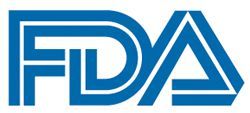News
Article
FDA Approves Capivasertib Plus Fulvestrant in Advanced HR+/HER2– Breast Cancer With PIK3CA, AKT1, or PTEN Alterations
Author(s):
The FDA has approved capivasertib plus fulvestrant for the treatment of patients with HR-positive, HER2-negative, locally advanced or metastatic breast cancer harboring 1 or more PIK3CA, AKT1, or PTEN alterations, following progression on at least 1 endocrine-based regimen in the metastatic setting or recurrence on or within 12 months of completing adjuvant therapy.
FDA

The FDA has approved capivasertib (Truqap) in combination with fulvestrant (Faslodex) for the treatment of adult patients with hormone receptor–positive, HER2-negative, locally advanced or metastatic breast cancer harboring 1 or more PIK3CA, AKT1, or PTEN alterations, as detected by an FDA-approved test, following progression on at least 1 endocrine-based regimen in the metastatic setting or recurrence on or within 12 months of completing adjuvant therapy.1
The regulatory decision was based on data from the phase 3 CAPItello-291 trial (NCT04305496), where findings demonstrated that among 289 patients with PIK3CA/AKT1/PTEN-altered tumors, the combination of capivasertib and fulvestrant (n = 155) elicited a median progression-free survival (PFS) of 7.3 months (95% CI, 5.5-9.0) vs 3.1 months (95% CI, 2.0-3.7) for placebo plus fulvestrant (n = 134; HR 0.50; 95% CI, 0.38, 0.65; P < .0001).
In the overall population, patients treated in the capivasertib arm (n = 355) experienced a median PFS of 7.2 months (95% CI, 5.5-7.4) vs 3.6 months (95% CI, 2.8-3.7) for those given placebo plus fulvestrant (n = 353; HR, 0.60; 95% CI, 0.51-0.71; P < .001).2
Notably, an exploratory analysis of 313 patients without PIK3CA/AKT1/PTEN alterations showed that treatment with the combination led to a numerical but not statistically significant improvement in PFS (HR, 0.79; 95% CI, 0.61, 1.02), indicating that the PFS difference in the overall population could primarily be attributed to the benefits seen in patients with PIK3CA/AKT1/PTEN-altered tumors.1
The randomized, double-blind, placebo-controlled, multicenter trial enrolled in 708 patients with locally advanced or metastatic hormone receptor–positive, HER2-negative breast cancer, including 289 patients whose tumors harbored PIK3CA/AKT1/PTEN alterations. Adult patients needed to have histologically confirmed disease following recurrence or progression during or after aromatase inhibitor therapy, with or without a CDK4/6 inhibitor, and up to 1 line of chemotherapy for advanced disease.2
HER2 negativity was defined as immunohistochemistry (IHC) 0 or 1+, or IHC 2+/negative in situ hybridization.
Patients were randomly assigned in a 1:1 fashion to receive 400 mg of oral capivasertib or placebo twice per day for 4 days, followed by 3 days off, in 28-day treatment cycles. In both arms, patients also received 500 mg of intramuscular fulvestrant on days 1 and 15 of cycle 1, then once every 28 days thereafter. Treatment continued until disease progression or unacceptable toxicity.
The co-primary end points of the trial were PFS in the overall patient population and in the population of patients whose tumors had PIK3CA, AKT1 or PTEN alterations in the AKT pathway. Secondary end points included overall survival (OS), objective response rate, and safety. Patient-reported end points included the European Organization for Research and Treatment of Cancer Core Quality of Life Questionnaire (QLQ-C30).
The most common adverse effects (AEs) that occurred in at least 20% of patients treated in the capivasertib arm included diarrhea, cutaneous adverse reactions, increased random glucose, decreased lymphocytes, decreased hemoglobin, increased fasting glucose, nausea, fatigue, decreased leukocytes, increased triglycerides, decreased neutrophils, increased creatinine, vomiting, and stomatitis.1
AEs led to dose interruption in 34.9% of patients receiving capivasertib vs 10.3% of patients receiving placebo. Dose reductions occurred in 19.7% of patients given capivasertib vs 1.7% given placebo. AEs leading to treatment discontinuation were reported in 13.0% and 2.3% of patients, respectively.2
References
- FDA approves capivasertib with fulvestrant for breast cancer. News release. FDA. November 16, 2023. Accessed November 16, 2023. https://www.fda.gov/drugs/resources-information-approved-drugs/fda-approves-capivasertib-fulvestrant-breast-cancer
- Turner NC, Oliveira M, Howell SJ, et al. Capivasertib in hormone receptor–positive advanced breast cancer. N Engl J Med. 2023;388(22):2058-2070. doi:10.1056/NEJMoa2214131







